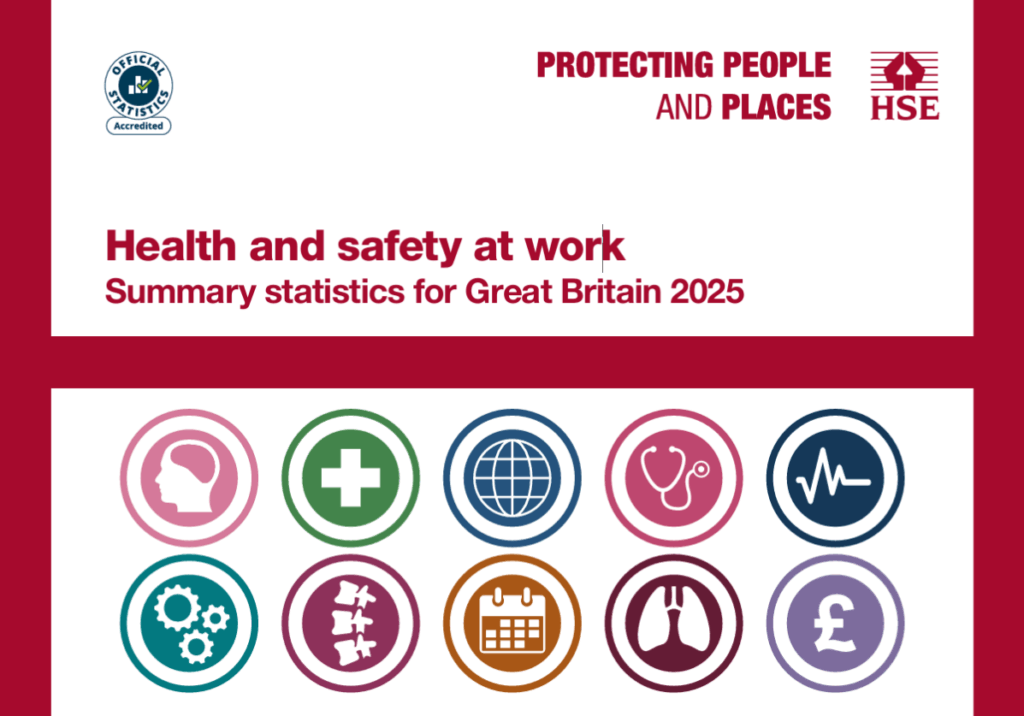In 2023, HSE reported 875,000 cases of work-related stress, depression or anxiety – numbers that remain considerably higher than pre-pandemic levels.
Going above and beyond to support your employees is absolutely fundamental to creating a healthy, happy and productive workplace. As a manager or supervisor, you’re positioned to create a supportive work environment and proactively identify potential mental health concerns among your team.
Read on to learn how to deliver mental health first aid and ongoing support in your workplace.
Legal and Ethical Considerations
First off, as an employer or manager, you have legal responsibilities regarding mental health in the workplace:
- Duty of Care: Ensure the health, safety, and wellbeing of your employees
- Equality Act 2010: Avoid discrimination against employees with mental health conditions
- Health and Safety at Work Act 1974: Assess and mitigate risks to mental health
You should always consult with HR, legal and health and safety professionals when dealing with complex mental health situations in the workplace.
Recognising the Signs of Mental Health in the Workplace
The first step in supporting mental health in the workplace is spotting potential issues. Keep an eye out for:
- Changes in work performance or productivity
- Increased absenteeism or tardiness
- Mood swings or irritability
- Social withdrawal or isolation from colleagues
- Physical symptoms like fatigue or headaches
- Difficulty concentrating or making decisions
While these signs don’t necessarily indicate a mental health problem, they sometimes warrant attention.
Approaching Conversations
If you’re concerned about an employee’s mental health, approach the conversation with empathy and respect.
Choose a private setting, express your concerns without judgement, listen actively, and offer support. Discuss available resources and follow up regularly to check on their progress. Remember, your role is supporting, not diagnosing or treating, mental health issues.
Creating a Supportive Environment
As a leader, you can foster a workplace culture that prioritises mental health. Core steps include:
- Leading by Example: Be open about your own mental health
- Encouraging Work-Life Balance: Promote flexible working hours and respect for personal time
- Providing Resources: Ensure employees are aware of available mental health support services
- Reducing Stigma: Normalise conversations about mental health through regular team discussions
Implementing Mental Health First Aid
Mental Health First Aid (MHFA) is training that teaches individuals how to identify, understand, and respond to signs of mental health and substance use challenges.
Think of it as the mental health equivalent of physical first aid training, covering:
- Common mental health issues such as depression, anxiety, psychosis, and substance use disorders
- Signs and symptoms of these conditions
- How to approach someone who may be experiencing a mental health crisis
- How to listen non-judgmentally
- How to provide initial support and information
- How to guide someone towards appropriate professional help
HCS Safety offers MHFA courses in a one-day course, ideal for any and all employees, and a more comprehensive two-day course, ideal for managers and supervisors, that covers more complex mental conditions and disorders.
The Role of Training
Luckily, today, the profile of mental health training is rising. This is helping those in leadership roles take mental health more seriously, enhancing their awareness and building safer workplaces for everyone.
HCS Safety offers comprehensive mental health training courses, including First Aid for Mental Health, Supervising Mental Health and the NEBOSH HSE Certificate in Managing Stress at Work.
Our expert-led courses will equip you and your team with the skills needed to create a mentally healthy workplace.
Contact HCS Safety today to learn more about our mental health training options and start building a more resilient, supportive work environment.




